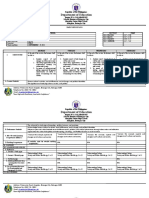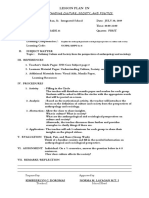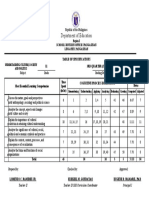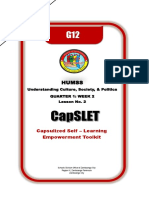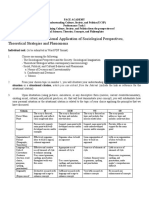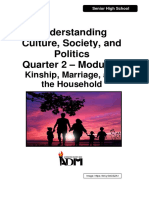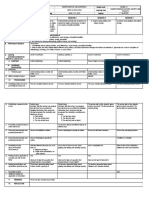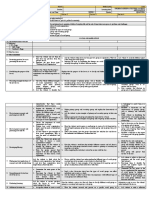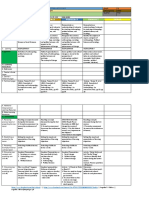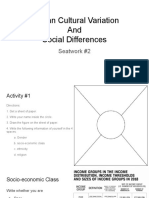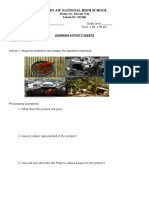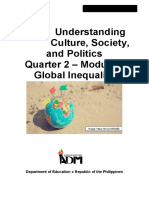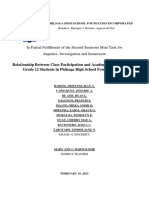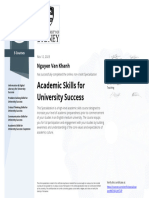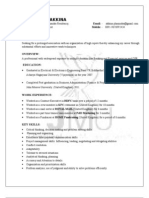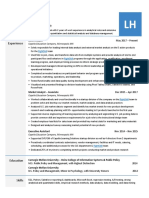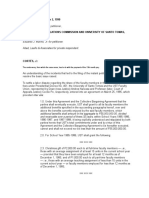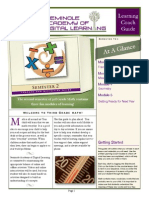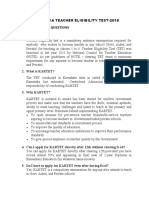0% found this document useful (0 votes)
233 views3 pagesSocial Sciences Lesson Plan
This lesson plan outlines a class on understanding culture and society. The objectives are for students to define culture and society, identify concepts through a concept map activity, and value learning about culture and society. Students will be divided into groups to create concept maps defining culture and society. They will then discuss and give examples of the concepts. Finally, students will answer questions to assess their understanding and learning. The teacher will evaluate students' outputs using a rubric and note aspects of the lesson that worked well and areas needing improvement.
Uploaded by
maurynfatima.servanoCopyright
© © All Rights Reserved
We take content rights seriously. If you suspect this is your content, claim it here.
Available Formats
Download as DOCX, PDF, TXT or read online on Scribd
0% found this document useful (0 votes)
233 views3 pagesSocial Sciences Lesson Plan
This lesson plan outlines a class on understanding culture and society. The objectives are for students to define culture and society, identify concepts through a concept map activity, and value learning about culture and society. Students will be divided into groups to create concept maps defining culture and society. They will then discuss and give examples of the concepts. Finally, students will answer questions to assess their understanding and learning. The teacher will evaluate students' outputs using a rubric and note aspects of the lesson that worked well and areas needing improvement.
Uploaded by
maurynfatima.servanoCopyright
© © All Rights Reserved
We take content rights seriously. If you suspect this is your content, claim it here.
Available Formats
Download as DOCX, PDF, TXT or read online on Scribd
/ 3









